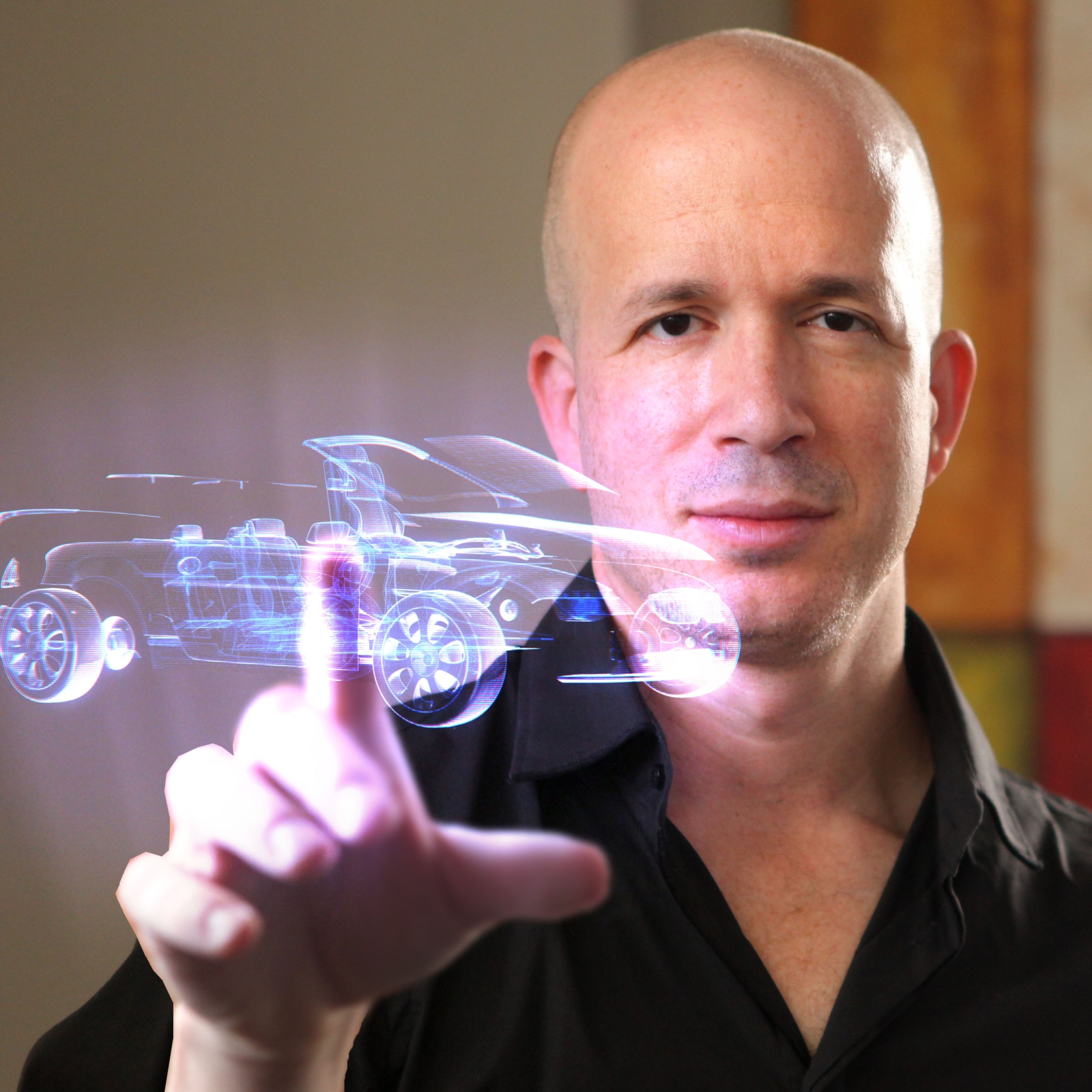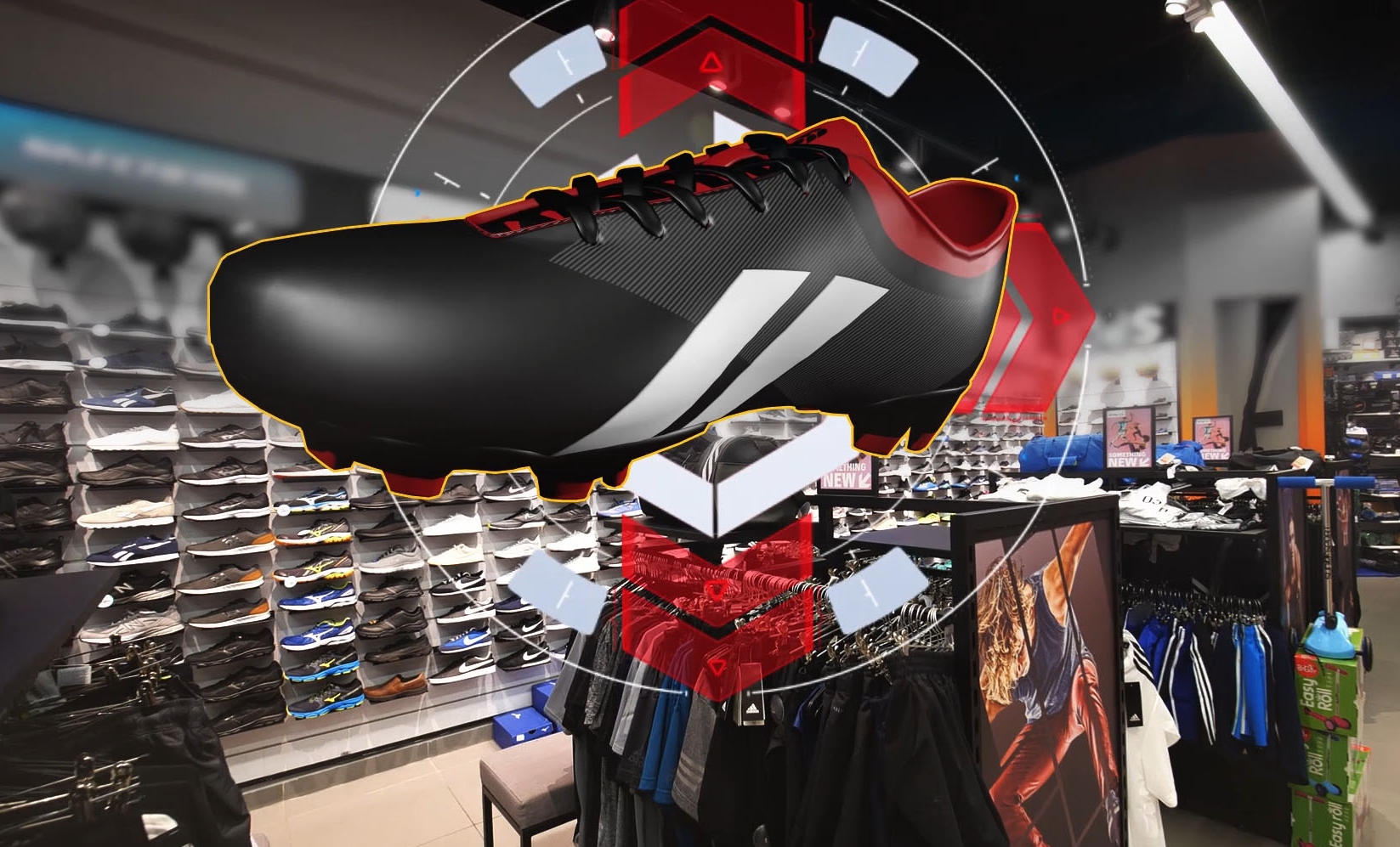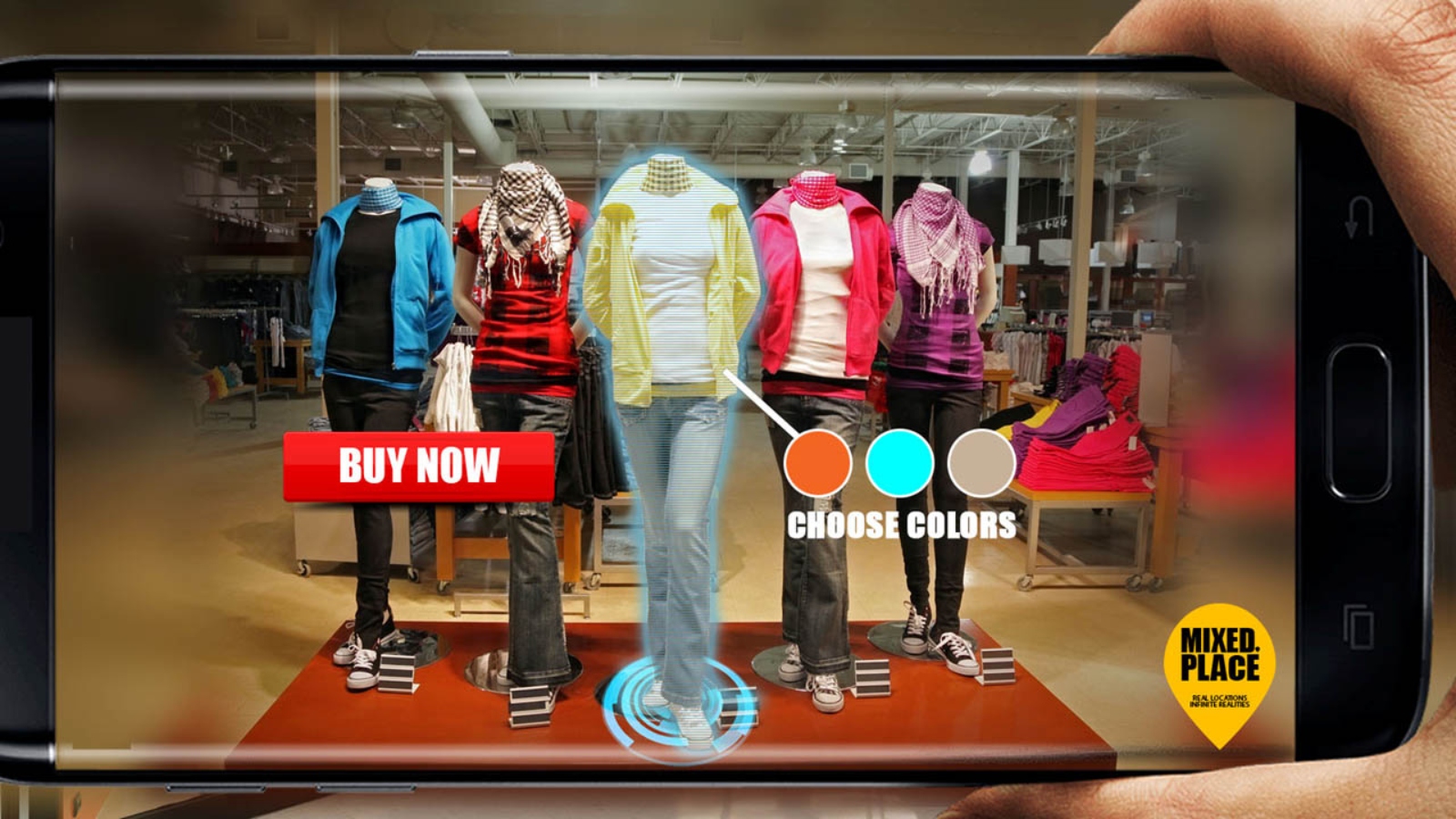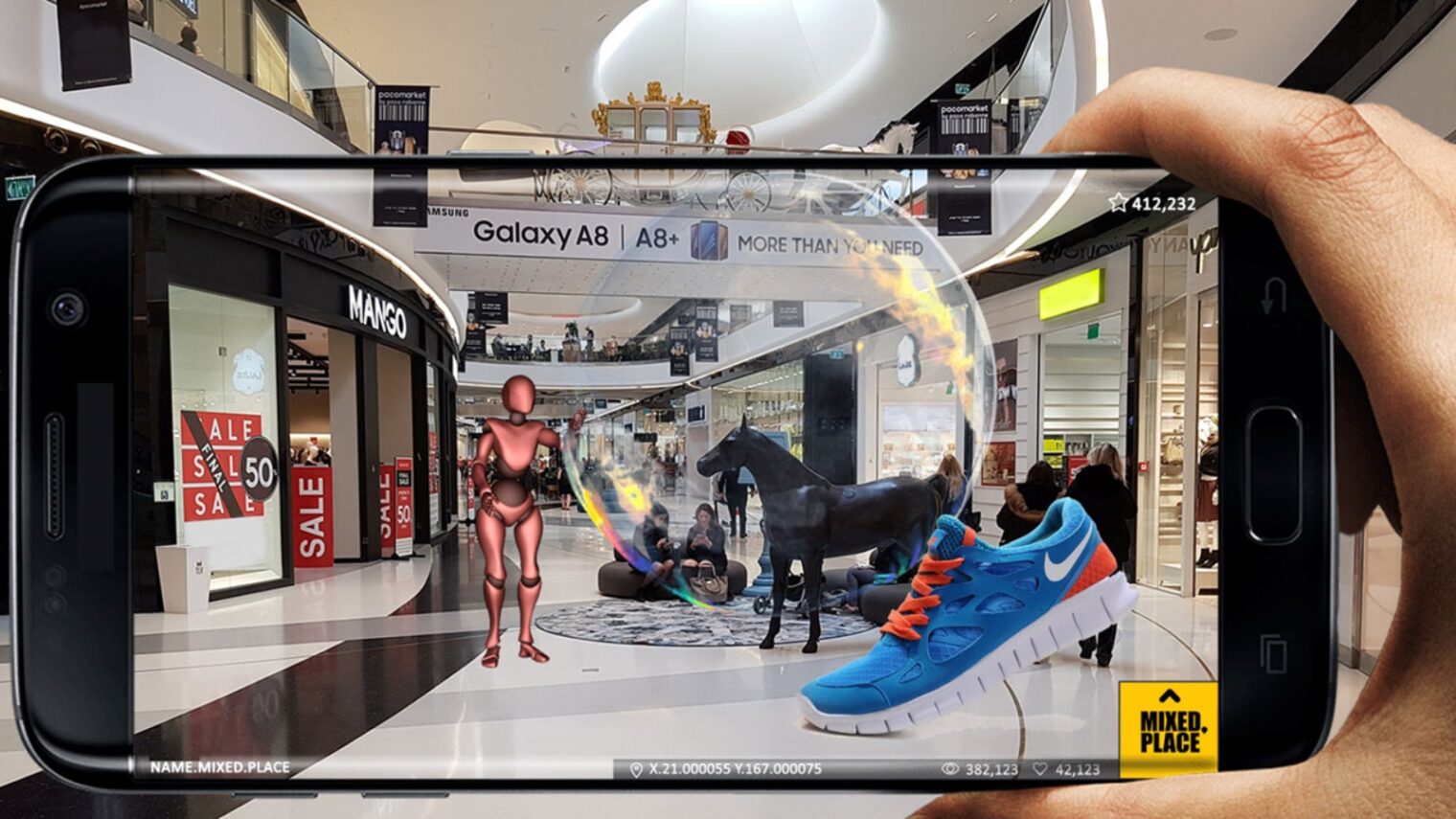If you thought the iPhone changed the way we interact with the world and with each other, you ain’t seen nothing yet, says Alon Melchner, founder and CEO of Mixed Place, an Israeli startup developing a technology infrastructure that will enable companies and advertisers to more easily join the bold world of “mixed reality.”
Mixed reality is a kind of midway point between immersive virtual reality (where you usually have to wear goggles) and augmented reality, where 3D objects appear superimposed on the real world through your mobile device’s camera or through AR glasses or contact lenses.

In a mixed-reality scenario, objects understand the shape and topography of the real world and combine with it so that you can move – and interact – seamlessly with both the real and the virtual.
Melchner gives the example of a futuristic Nike retailer. In addition to the usual mix of shoes, one table in the store is completely empty.
“We can create a virtual salesperson that knows when you’re getting closer to the store and can guide you in. Through your phone or smart glasses, you’ll see shoes personalized for you on the empty table. You can rotate them, change the colors and then make your order.”

While you can’t touch or feel the merchandise in such a mixed-reality environment, it solves a problem for stores that can’t hire enough employees during peak hours or keep enough stock on hand in every shop. The same technology could be used to open instant pop-up mixed-reality shops.
Melchner asks us to think about store mannequins in a mixed-reality environment: Instead of seeing only what the store designer chose, you can scroll through the shop’s catalog and place clothing items that you’d be more likely to wear on the unclothed window dummy.
Potentially, this could mean that as you walk down the street or through a mall, you’ll be bombarded by virtual advertisements through your mixed-reality glasses, but they’d be personalized. Melchner say this would be better than the existing situation where ads are already ever-present on every corner, but often not relevant for you.
Retail, tourism, gaming
The five-person company, founded in November 2017 and based in Ra’anana, is focusing first on the areas where early adopters typically flock: retail, tourism and entertainment.
Instead of putting up signs with QR codes for tourists to scan as they explore a destination, mixed reality can bring a human character to speak with you as you walk through an attraction, explaining what you’re looking at.
At an archaeological site, the image you see in your glasses can transform from ruin to restoration. “A broken pillar can become whole again,” Melchner says.

Gaming is ripe for disruption, as well. For a European client, Mixed Place recently produced a virtual mini-golf experience where, by looking through your phone’s screen, you can propel a 3D image of a ball in the real world. It’s much more realistic than playing a mini-golf game on your phone’s screen, Melchner emphasizes.
“When you place a tree in the world, you can make it persist in that location and you can share it with others,” Melchner says. “So both you and I see the same tree from different locations.”
Contrast that with perhaps the most well-known AR application to date: Pokemon Go. Ninety-five percent of the game is based on the map on your phone.
“When you reach a location, you open your camera and you see a Pokemon in front of you,” Melchner points out. “But it’s not really becoming part of the topography. Mixed reality is the next step of the evolution – where content and the real environment become one.”
Smarter than Google Glass
For those who remember the failed Google Glass experiment, what’s on the horizon will be far more sophisticated.
With Google’s glasses, for example, you had just a small window to display Internet-accessed data and images. The next generation of smart glasses — coming as soon as two to three years from now, Melchner predicts – can display 3D images over the entire field of vision.
Melchner believes Apple, which is pouring resources into the space, will be first to market. Such glasses, which will eventually come from all the major hardware and software giants, “will be as commonplace as the smartphone and the tablet. Everyone eventually will walk around with some type of viewing device.”

Melchner expects that most of these devices will support the Mixed Place infrastructure, and he predicts that, just like Apple and Google rely on their respective app stores for content, mixed-reality content creators will rely on Mixed Place.
That said, cooperation deals will need to be inked with the major players and there will be plenty of risks along the way.
One way to defray those risks is to raise money. Mixed Place has raised a $750,000 seed round from the PPI Worldwide advertising agency and is now raising a Series A of $7 million, Melchner tells ISRAEL21c.
Melchner has been involved in the virtual, augmented and mixed-reality fields for a while. His previous company, Waking App, launched in 2013 to build a PowerPoint-like program allowing non-programmers to create VR and AR content using simple drag-and-drop tools. WakingApp has raised over $10 million and Melchner is still a shareholder.
The inevitability of mixed reality is unstoppable, Melchner asserts. “We have traditionally consumed content in 2D,” via TVs, phones and screens. But in real life “humans need to experience things in a 3D environment.”
It’s a true paradigm shift and “a magical world,” Melchner says. “And it’s coming.”
For more information, click here

















